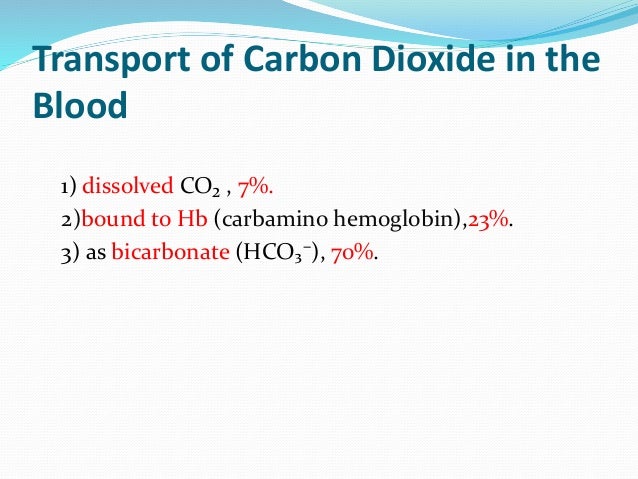

Dehydration, for example, can cause high CO2 levels. There are a number of diseases and disorders that can cause changes in CO2 levels, but keep in mind that not all findings outside of the normal ranges on a carbon dioxide blood test indicate a serious illness. Your CO2 level needs to stay within a certain range, but when it's too high (or too low) the blood test results can help your healthcare provider to identify and diagnose a health condition. This is usually sufficient, but measurements of gasses dissolved in the blood ( blood gasses ) may be done if more information is needed.

This test is also known as: Carbon dioxide content, CO2 content, Bicarbonate blood test, Bicarbonate test, Total CO2, TCO2, HCO3, CO2 test-serum.Ī Carbon Dioxide (CO2) test gives a health care practitioner a rough estimate of your acid-base balance. If your CO2 levels rise too high or fall too low, the test results may be an indication that you have a health condition that needs diagnosis and treatment. What is the Carbon Dioxide (CO2) blood test?Ī Carbon Dioxide (CO2) blood test evaluates the presence of the gas Carbon Dioxide (CO2) in your blood. Therefore, the CO2 blood test is really a measure of your blood bicarbonate level. In the body ( as mentioned above ), most of the CO2 is in the form of a substance called bicarbonate (HCO3-). It also works with other electrolytes (sodium, potassium, and chloride) to maintain electrical neutrality at the cellular level.

Carbon Dioxide (CO2) is an electrolyte, a negatively charged ion used by the body to help maintain the acid-base balance in the body. In a healthy individual, the presence of CO2 in the blood stays within a normal range and doesn’t present any problems.Ĭarbon Dioxide (CO2) is one of the most important buffer systems in maintaining normal blood and body fluid acid-base balance (pH). It's carried by the bloodstream to your lungs, primarily in a bicarbonate (HCO3) form, and then exhaled out while breathing. Your body produces Carbon Dioxide (CO2) gas as a byproduct.


 0 kommentar(er)
0 kommentar(er)
